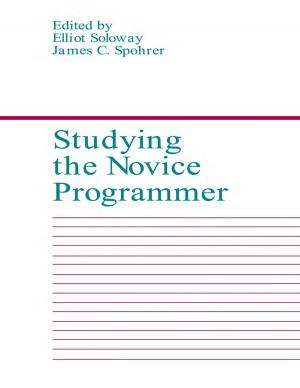| Author: | Kavous Ardalan | ISBN: | 9781317356325 |
| Publisher: | Taylor and Francis | Publication: | November 6, 2015 |
| Imprint: | Routledge | Language: | English |
| Author: | Kavous Ardalan |
| ISBN: | 9781317356325 |
| Publisher: | Taylor and Francis |
| Publication: | November 6, 2015 |
| Imprint: | Routledge |
| Language: | English |
Social theory can usefully be conceived in terms of four key paradigms: functionalist, interpretive, radical humanist, and radical structuralist. The four paradigms are founded upon different assumptions about the nature of social science and the nature of society. Each generates theories, concepts, and analytical tools which are different from those of other paradigms and together they provide a more balanced understanding of the phenomenon under consideration. This book demonstrates that an understanding of these different paradigms and how they can be applied leads to a better understanding of the multi-faceted nature of political economy.
Any explanation of a given phenomenon is based on a worldview. The premise of this book is that any worldview can be associated with one of the four key paradigms. Each chapter of the book takes an important phenomenon (i.e., the state, justice, freedom, democracy, liberal democracy, media, and the great recession) and discusses it from the four different viewpoints. It emphasizes that the four views expressed are equally scientific and informative. They look at the phenomenon from their certain paradigmatic perspective and together provide a more balanced understanding of the phenomenon under consideration.
The diversity of economics research possibilities referred to in this book is vast. While each paradigm advocates a research strategy that is logically coherent, in terms of underlying assumptions, these vary from paradigm to paradigm. The phenomenon to be researched can be conceptualized and studied in many different ways, each generating distinctive kinds of insight and understanding. This book is for those who study political economy as well as economic theory and philosophy.
Social theory can usefully be conceived in terms of four key paradigms: functionalist, interpretive, radical humanist, and radical structuralist. The four paradigms are founded upon different assumptions about the nature of social science and the nature of society. Each generates theories, concepts, and analytical tools which are different from those of other paradigms and together they provide a more balanced understanding of the phenomenon under consideration. This book demonstrates that an understanding of these different paradigms and how they can be applied leads to a better understanding of the multi-faceted nature of political economy.
Any explanation of a given phenomenon is based on a worldview. The premise of this book is that any worldview can be associated with one of the four key paradigms. Each chapter of the book takes an important phenomenon (i.e., the state, justice, freedom, democracy, liberal democracy, media, and the great recession) and discusses it from the four different viewpoints. It emphasizes that the four views expressed are equally scientific and informative. They look at the phenomenon from their certain paradigmatic perspective and together provide a more balanced understanding of the phenomenon under consideration.
The diversity of economics research possibilities referred to in this book is vast. While each paradigm advocates a research strategy that is logically coherent, in terms of underlying assumptions, these vary from paradigm to paradigm. The phenomenon to be researched can be conceptualized and studied in many different ways, each generating distinctive kinds of insight and understanding. This book is for those who study political economy as well as economic theory and philosophy.















